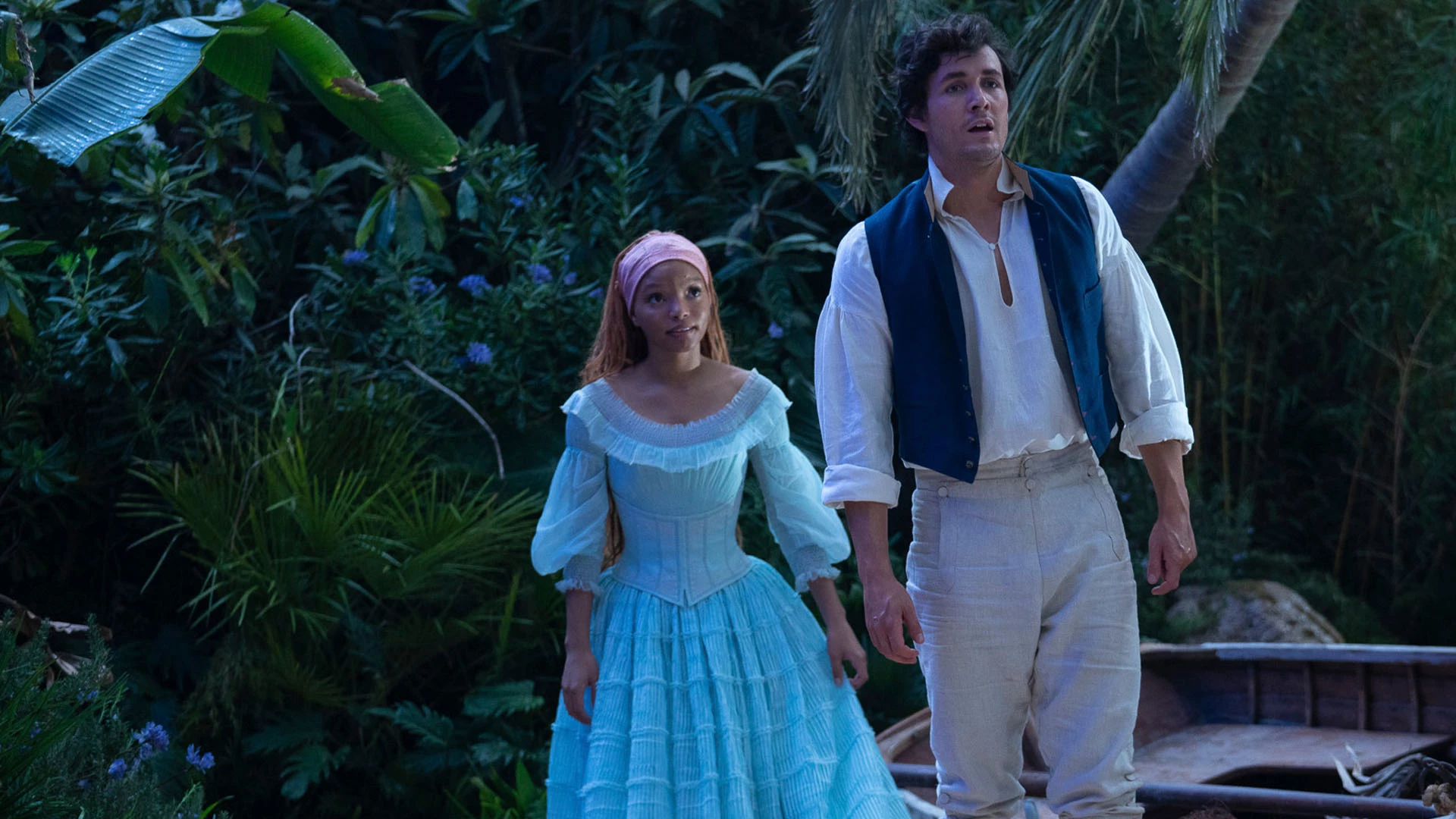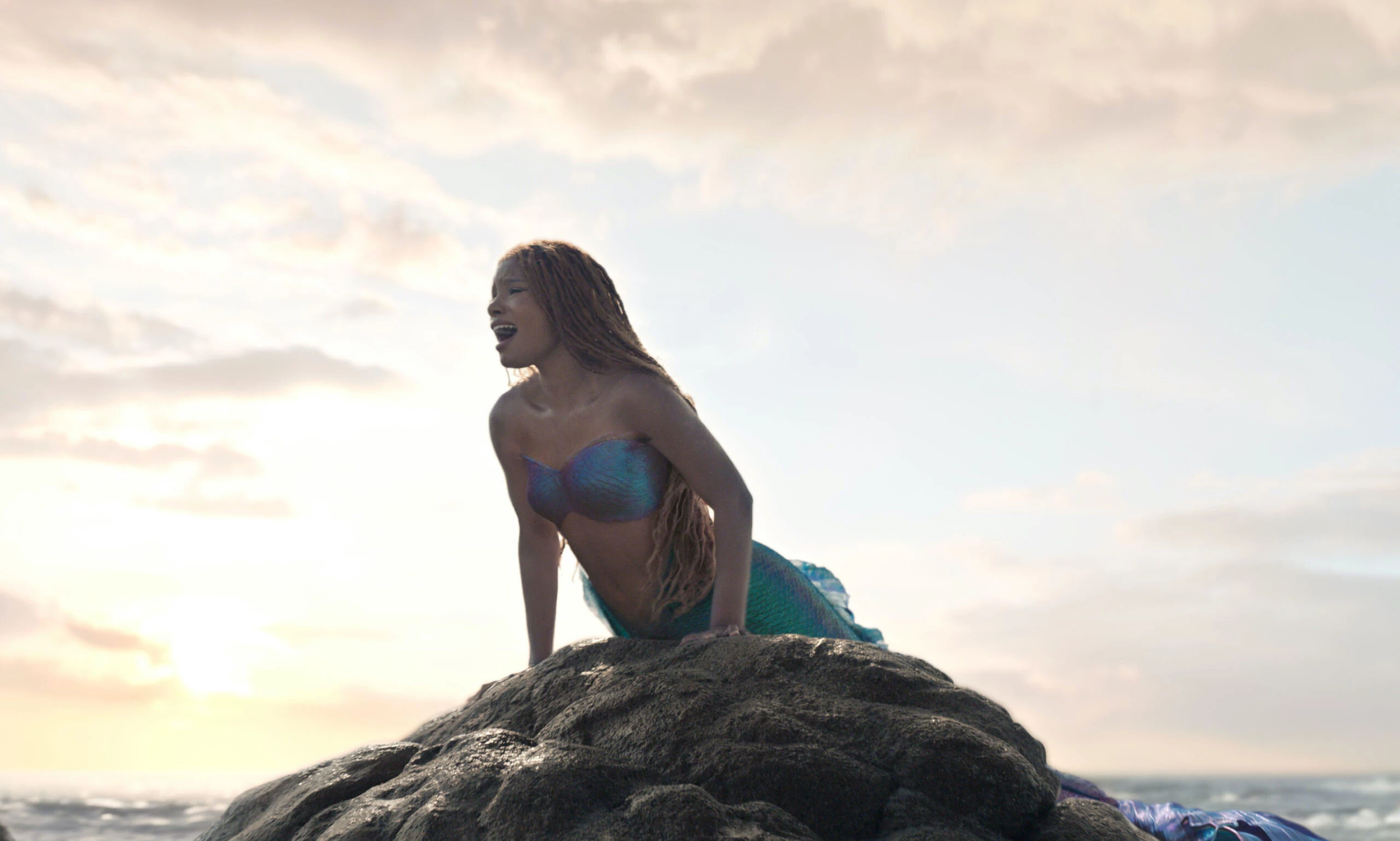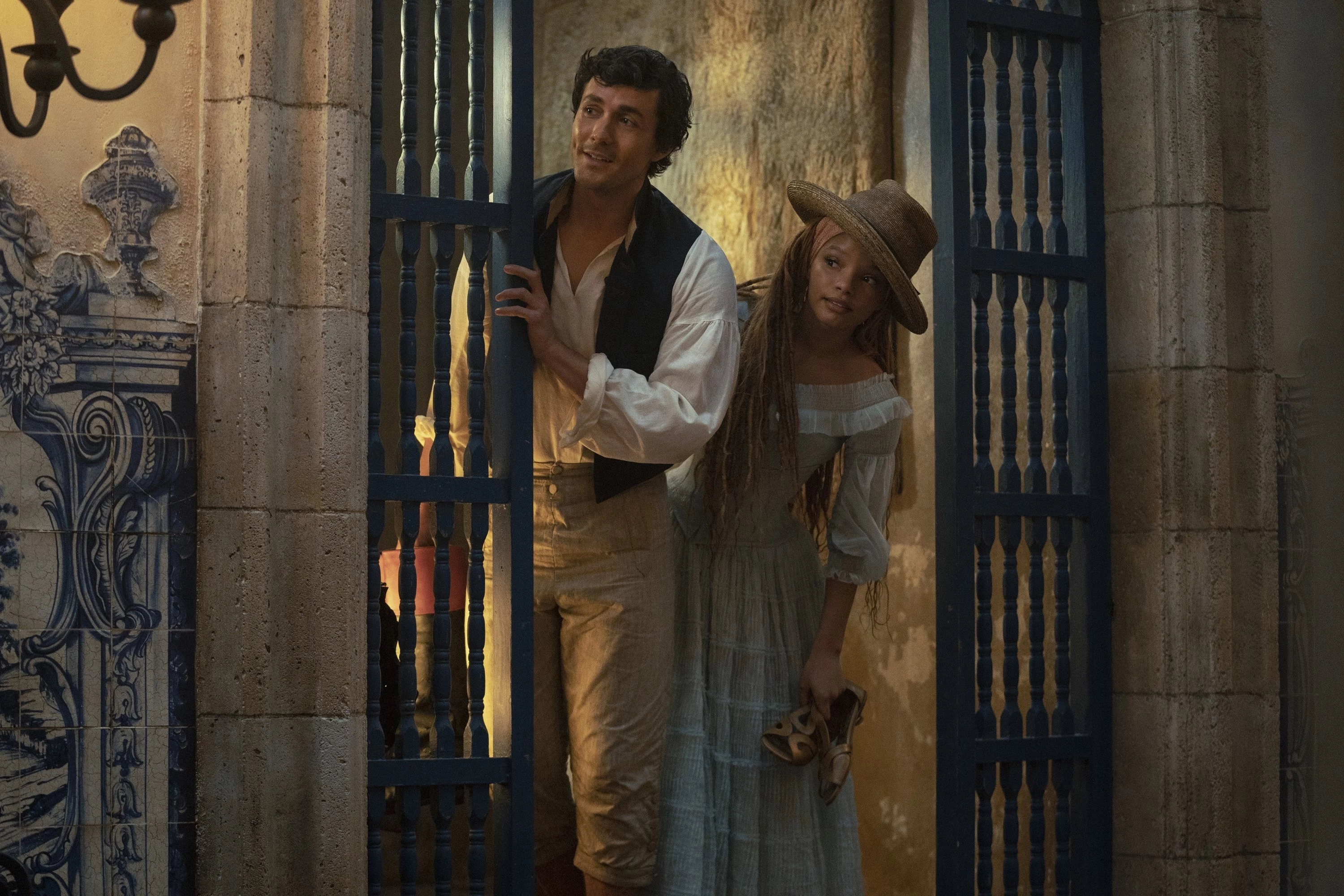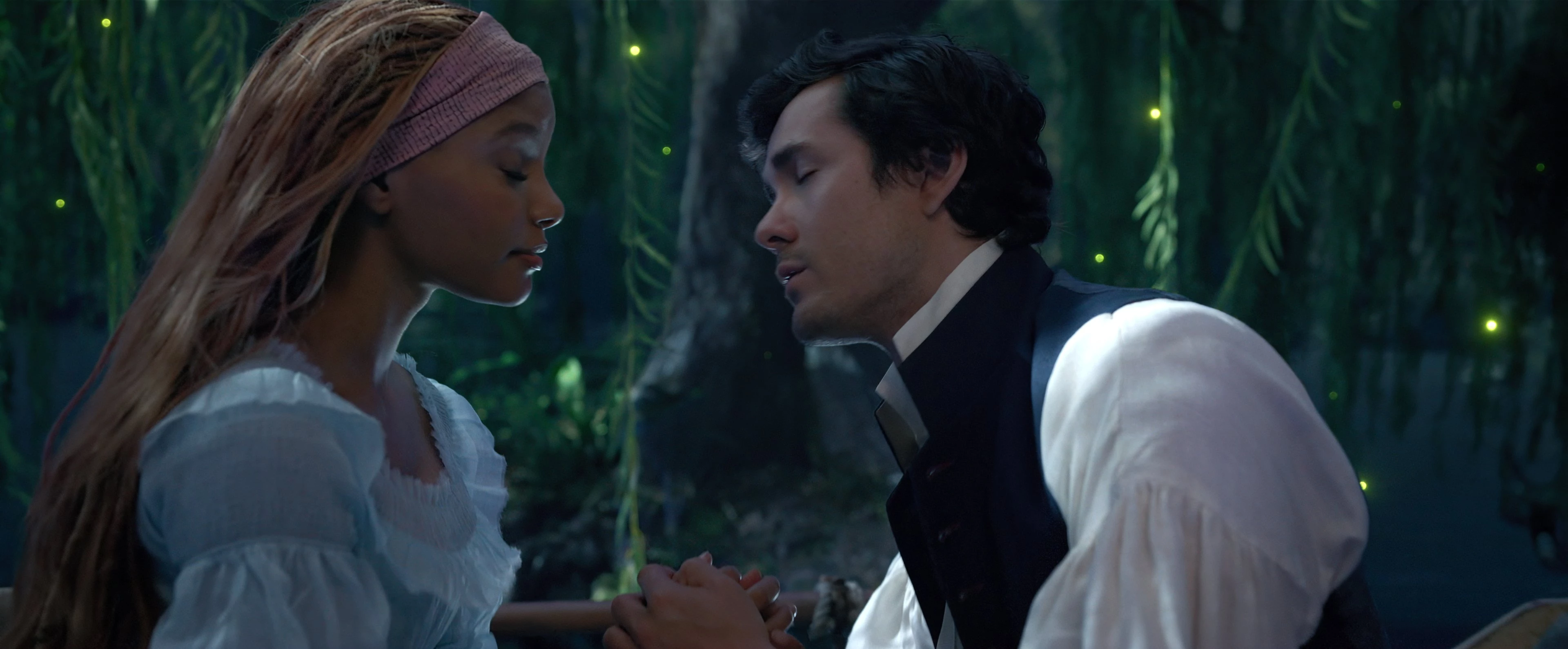Disney has unleashed their latest live-action adaptation, "The Little Mermaid," and it's a behemoth of a movie. Clocking in at a staggering 52 minutes longer than the beloved 1989 animated classic, it aims for greatness but falls short.
One of the main reasons for the expanded runtime is the inclusion of three new songs: "Wild Uncharted Waters," "For the First Time," and "Scuttlebutt." In addition, the timeless classic "Part of Your World" gets an extra reprise, while two original songs, "Poor Unfortunate Souls" and "Kiss the Girl," undergo lyrical changes or omissions.
On the surface, the songs in both versions share similarities, with almost all of the 1989 classics making a return appearance. While Menken returns to compose the music, the task of songwriting falls upon the capable hands of Lin-Manuel Miranda, known for his outstanding contributions to Disney films like "Moana" and "Encanto." So, with such talent involved, one wonders, what could possibly go wrong?
Wild Uncharted Waters: No Emotional Value
 Source: Walt Disney Pictures
Source: Walt Disney Pictures
First, "Wild Uncharted Waters" aims to delve deeper into Eric's character and expand his story beyond what we've known. The song revolves around Eric feeling constrained and longing for freedom, with the encounter with Ariel serving as the catalyst for his future happiness.
The concept of drawing a parallel between Eric's attraction to the ocean and Ariel's yearning for land is indeed intriguing. However, the execution falls short, as the emotional impact is lacking in this soggy power ballad. Especially when compared to the incredible rendition of "Part of Your World" by Bailey, "Wild Uncharted Waters" fails to deliver the same emotional weight.
Furthermore, the issue of Eric feeling trapped is severely undermined by a glaring contradiction. Moments before the song, his mother explicitly tells him that he can never set foot on a ship again. Yet, within mere seconds, he defies this proclamation by singing aboard a ship. It becomes hard to believe in Eric's predicament of being unable to live life on his terms when he blatantly engages in the very actions he supposedly laments, all while singing about his perceived restrictions.
For The First Time, Certainly The Best But Inconsequential
 Source: Walt Disney Pictures
Source: Walt Disney Pictures
In "For the First Time," Bailey gets an opportunity to showcase her vocal prowess, a strategic decision considering she stands out as the movie's shining star. The song delves into Ariel's emotions as she experiences life on land. Among the new additions, it stands out as the strongest, largely due to Bailey's beautiful rendition infused with her unique personality. However, the downside is that it leans more toward narration rather than a fully-fledged song.
Much of what Ariel sings simply describes what we can already observe on the screen, merely reiterating what is already apparent. Memorable musical numbers typically delve deeper beneath the surface, but "For the First Time" merely reinforces what we already know. It carries a sweet sentiment but lacks significant impact.
Scuttlebutt, A Sloppy Nonsense That Should Not Been Made
 Source: Walt Disney Pictures
Source: Walt Disney Pictures
While I'm not certain one can legally sue for auditory distress caused by dreadful music, "Scuttlebutt" would certainly be a strong candidate for a criminal trial. Howard Ashman, known for his musical philosophy of advancing the story through songs and giving them purpose, would likely cringe at this particular composition. It stands in stark contrast to Ashman's approach, as it bombards the ears with an ear-splitting rap.
Now, don't get me wrong, rap can absolutely find its place within this world. Lin-Manuel Miranda shattered expectations with "Hamilton," seamlessly blending rap into the context of 18th-century America. In theory, it could have worked here too, had "Scuttlebutt" not been so carelessly written and sounding like a personal attack on our eardrums.
It's a chaotic mishmash, featuring perplexing lyrics about beaks (?) and overweight pigeons (??). Unfortunately, the song showcases Miranda succumbing to his own impulses, prioritizing rapid lyrical exposition over substance, indulging in personal desires at the expense of the story itself.
Kiss the Girl Changes Lyrics For Absolutely No Reason
 Source: Walt Disney Pictures
Source: Walt Disney Pictures
In the revised version of "Kiss the Girl," the original lyrics undergo changes to emphasize the consensual nature of Eric kissing Ariel. The lines "Possible she wants you too / There is one way to ask her / It don’t take a word / Not a single word / Go on and kiss the girl" are transformed into "Possible she wants you too / Use your words boy, and ask her / If the time is right and the time is tonight / Go on and kiss the girl." The intention behind these alterations is to clarify that Eric's actions are not coercive and that both parties willingly desire the kiss.
However, these changes come across as nonsensical. Anyone who has seen the 1989 version can easily perceive that the kiss is mutually desired by both characters. In fact, Ariel longs for the kiss more than anything else in the world. She even leans in and puckers her lips, while Eric's nerves get the best of him. There is never any doubt, in either film, that both parties enthusiastically desire the kiss.
It feels like an unnecessary attempt to preempt a controversy that simply doesn't exist. In doing so, they undermine the clear consent and shared desire evident in the original scene.
Have you seen the movie yet? Comment down your thoughts below!